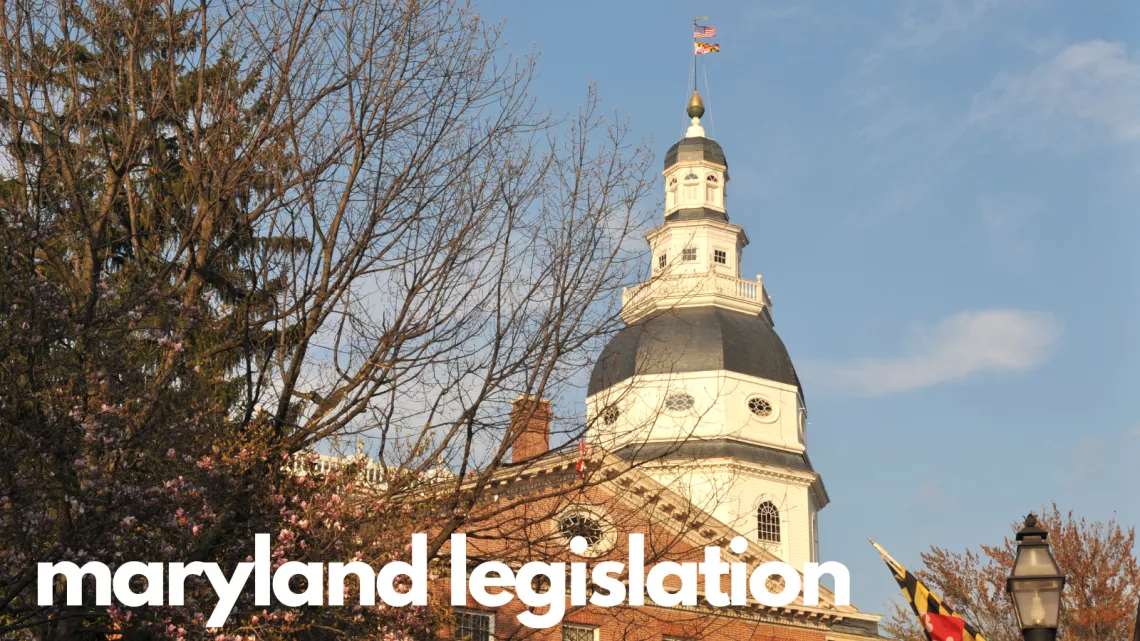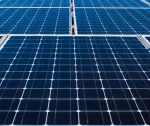
2023 Legislative Summary
The Maryland General Assembly concluded a very productive 2023 legislative session in April. Three of our Chapter’s top five priority bills passed, and action on the other two bills laid a solid foundation for future enactment. Many other excellent bills passed as well, and our Chapter and your support played a part. We submitted written testimony on over 150 bills and provided oral testimony and consultation on many of these.
Clean energy
We helped make the Community Solar program permanent and more accessible for low- and moderate-income (LMI) households. This is a big win. Unfortunately, our efforts to reform the EmPOWER program to focus on greenhouse gas reduction fell short on the final day, but this issue is certain to be revisited next year. The General Assembly did pass a related bill to reform the EmPOWER program so that it will better serve LMI households. We also helped get bills across the finish line that will:
- Facilitate bringing 8,500 megawatts of clean offshore wind energy onto the grid in Maryland.
- Establish an energy storage program in the state, which will help support the transition to renewable electricity sources.
Transportation
The General Assembly passed a bill requiring Maryland to adopt the Advanced Clean Trucks rule, a regulation we have been advocating with our coalition partners over the last two years. This rule requires manufacturers to sell an increasing percentage of electric school buses, trucks, and delivery vans in Maryland starting in 2026. We also supported successful passage of bills that will:
- Require the Maryland Department of Transportation to make equity a core goal in transportation planning and perform transit equity analyses before making significant changes to public transit service.
- Fund equitable transit-oriented development projects.
Natural places
We helped lead efforts to pass the Maryland the Beautiful Act, which sets goals of protecting 30 percent of Maryland’s lands from development by 2030 and 40 percent by 2040. In addition, we supported successful passage of the Greenspace Equity bill, which will promote natural places in underserved communities, and significant improvements to the Forest Conservation Act that will increase protections through stronger replanting ratios and expanded protections for priority forest. We also helped pass bills that will:
- Make 2,000 miles of utility rights-of-way much better habitat for pollinators.
- Make new state office buildings less hazardous to birds.
- Promote knowledge and availability of native plants for consumers, growers, and retailers.
Zero waste
The Zero Waste Team developed two new bills that had strong hearings: a beverage container deposit program and mandated post-consumer recycled content in plastic containers. Together, the bills would increase the beverage container recycling rate to 90%, reduce beverage container litter by at least two-thirds, and increase the supply and demand for post-consumer recycled material, especially plastic. With the educational efforts made this year, both bills are in a strong position to make progress in 2024. Bills passed to:
- Require a study of an extended producer responsibility program aimed at reducing packaging materials.
- Double the area that farms may use to compost food scraps without a permit, to 10,000 square feet, thereby diverting food scraps from the waste stream and reducing methane emissions.
Unfortunately, time ran out moments before legislators could provide final approval of a bill that would establish a paint stewardship program requiring producers to take responsibility for the collection, recycling, and disposal of leftover house paint. And, like last year, a bill to establish a chain of custody for synthetic turf sports fields from installation to disposal (to deter dumping and promote proper disposal) passed the House but stalled in the Senate.
Elections and Cross Cutting
We also supported bills to protect voter participation in elections, and a variety of cross-cutting bills to protect public health and the environment. Successful bills will facilitate mail-in voting and strengthen the environmental monitoring capacity of the Office of Attorney General.
GET INVOLVED
Our work on policy initiatives for the 2024 session will begin soon. While we had many successes, there are also important areas for making future progress. To get involved in this work, email legislation@mdsierra.org. Alternately, fill out this short survey and someone will get back to you. Another way to get involved, is to view the list of our Chapter committees and issue teams, find one that interests you, and reach out to the contact.
TESTIMONY PAGE
2023 House protocols and 2023 Senate protocols. See also relevant tutorials.
LEGISLATIVE HISTORY
The Maryland General Assembly’s 2023 Legislative Session started on January 11 and ended at midnight on April 10. A summary of those results is listed above.
In 2022 Maryland enacted the Climate Solutions Now Act, which set bold goals of a 60 percent reduction from 2006 levels of greenhouse gas emissions by 2031 and net-zero emissions by 2045. In 2023, we followed up this Act with legislative proposals designed to support achievement of the goals.
Attached are links to fact sheets developed for the 2023 session. We expect these sheets will be updated before the 2024 session for areas where legislation was not enacted in 2023.
1. Energy Savings Act (Update to EmPOWER) [FACT SHEET]

This legislation will update Maryland’s energy efficiency program (EmPOWER Maryland) to refocus it on reducing greenhouse gas emissions. The reformed program would provide rebates to Maryland households to switch from gas to high-efficiency electric heating, cooking, hot water heating, and clothes drying, and would end subsidies for fossil-fuel burning appliances. We also are supporting a related bill passed in 2022 but vetoed that would increase EmPOWER’s support for low- and moderate-income ratepayers.
2. Make Community Solar a permanent part of Maryland’s solar energy efforts [FACT SHEET]

The current Community Solar pilot program has demonstrated that Community Solar is an important means for offering solar energy to households that cannot install solar on their roof, such as low- and moderate-income renters. It is important to enact legislation this session to make the program permanent to avoid what otherwise will be a pause in new Community Solar projects that would set back the state’s clean energy efforts and could drive the Community Solar industry from our state.
3. Pass Advanced Clean Trucks Rule [FACT SHEET]

Maryland should join California, Massachusetts, New Jersey, New York, Oregon, Vermont, and Washington state and adopt this regulation to accelerate increased sales of electric medium- and heavy-duty trucks, school buses, and delivery vans through 2035. These phased in sales goals would reduce greenhouse gas and other pollution, averting over 116,000 respiratory illnesses in Maryland through 2050. The Maryland Commission on Climate Change recommended that Maryland adopt the Advanced Clean Truck rule in its 2022 annual report.
4. Strengthen Forest and Land Conservation [FACT SHEET]

Promote greater conservation of forests, farms, and other undeveloped lands through the Maryland the Beautiful Act. This bill will establish goals of protecting 30% of the state’s lands by 2030 and 40% of the state’s lands by 2040.
5. Pass a Maryland beverage container deposit program [FACT SHEET]

Ten states in the U.S., covering about 90 million people, have long-standing, successful, and cost-effective beverage container deposit programs that incentivize recycling and deter littering by refunding a small deposit for each container to those who return them for recycling. A modern program requiring a 10-cent deposit on single-use beverage containers would boost Maryland’s recycling rate for beverage containers, from 23% to more than 80%; remove about 3 billion beverage containers annually from landfills, incinerators, or the environment; and yield substantial cost savings for local governments.
We also will be testifying during the 2023 session in support of many other bills and appropriations actions. We expect these will include legislation to:
- promote offshore wind development and associated transmission investments
- fund an organizational assessment of the Public Service Commission, to ensure the PSC is well positioned to support the state’s transition to clean energy
- support transit-oriented development
- HB 950 / SB 836 Maryland Native Plant Program Fact Sheet
- improve stream restoration and water runoff policies
- combat environmental racism by strengthening the process to obtain permits for projects that threaten our air, land, water, and people, via the SB 743 Climate, Labor, and Environmental Equity Act of 2023 [FACT SHEET]
- enhance the environmental enforcement tools available to the Attorney General
- require recycled content in new plastic containers, to displace virgin plastic and incentivize redesign of products to make them more recyclable, HB 342 "Plastic Postconsumer Recycled Content Program" [FACT SHEET]
- increase reuse and recycling of used paint [FACT SHEET] and mattresses through two new stewardship programs; and
- require owners of synthetic turf playing fields [FACT SHEET] to report the chain of custody from installation to disposal of the fields’ turf and infill, to deter improper disposal.
Navigating the General Assembly Online
The links below help give more information on watching hearings, testifying, setting up a MyMGA new account, witness sign up, and understanding how bills become law.
WATCH A HEARING VIDEO TUTORIALS BILL PROCESS GENERAL ASSEMBLY WEBSITE
FIND YOUR LEGISLATORS 10 SUGGESTIONS TAKE ACTION EMAIL US